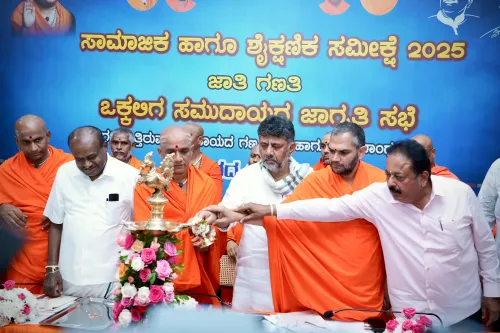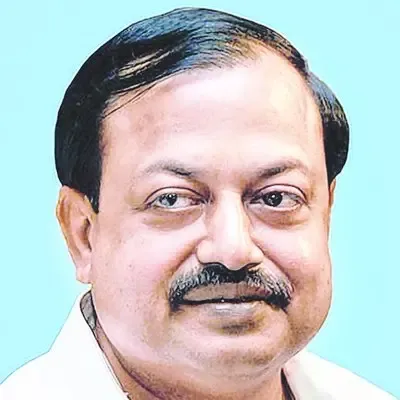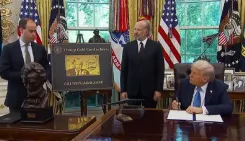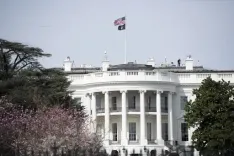Why is NDA Supporting SIR in West Bengal?
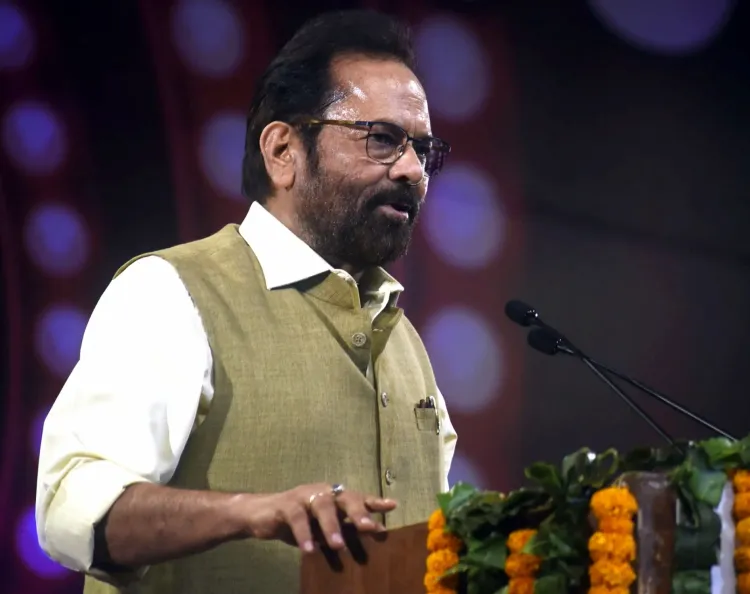
Synopsis
Key Takeaways
- The ECI has initiated training for polling officers in West Bengal for the SIR.
- Opposition protests highlight concerns about electoral integrity.
- Supreme Court's involvement could reshape the SIR process.
- Political dynamics are critical as elections approach.
- Transparency is vital for maintaining public trust.
New Delhi, Sep 16 (NationPress) The Election Commission of India (ECI) initiated the training of polling officers in West Bengal on Tuesday as part of the groundwork for the Special Intensive Revision (SIR) of electoral rolls in the state.
Officials from the Chief Electoral Officer's office in Kolkata reported that the training began with a virtual meeting at 2 PM, attended by all personnel involved in the forthcoming SIR process.
This training follows the SIR conducted in Bihar, which precedes the Assembly elections in that state later this year. West Bengal, on the other hand, is scheduled to hold elections in 2026.
The SIR initiative has sparked significant protests from the Opposition, which has even approached the Supreme Court regarding it. On Monday, the Supreme Court indicated it might annul the SIR in Bihar if any illegalities were found in the methodology used by the Election Commission.
In response to the uproar, BJP leader Mukhtar Abbas Naqvi stated to IANS, "There have been irregularities in the inclusion of illegal voters, and a review is crucial. This is vital for democracy and for genuine voters."
Uttar Pradesh Minister Anil Rajbhar echoed this sentiment, saying, "We support and commend this initiative by the Election Commission. This is not new; it is the 11th time it is being done in the country. If the Election Commission aims to ensure that only Indian citizens vote, no Bangladeshi, Rohingya, or infiltrator should be allowed to cast a vote; objections should not arise."
"The Opposition should cease their accusations against the Election Commission," he added.
Bihar Minister Santosh Kumar Singh also backed the move. He told IANS, "Prime Minister Modi has assured the protection of every citizen's rights in India. We and the entire nation's 1.4 billion citizens trust that as long as the Modi government is in power in Delhi and Nitish Kumar's government is in Bihar, no voter in Bihar will be deprived of their voting rights."
"Similarly, an SIR should also occur in West Bengal. It should be implemented nationwide. This is not the first occurrence of SIR. Bogus voters must be eliminated throughout the country," the Bihar Minister added.
Nonetheless, the Opposition remains steadfast in their objections.
Uttar Pradesh Congress spokesperson Surendra Rajput stated to IANS, "While SIR is beneficial, provisions should now include Aadhaar, whether in Bengal or anywhere else in the nation. There is no opposition to SIR, but in its name, the votes of backward classes, Dalits, tribals, women, youth, and farmers must not be disenfranchised."
"Votes of living individuals should not be canceled, and votes of deceased individuals linked to the BJP should not be added. A completely transparent system would be preferable," he added.
AAP Rajya Sabha MP Sanjay Singh went further, alleging collusion between the ECI and the BJP.
"I can provide an example from Uttar Pradesh. In Mahoba, out of 16,000 votes in the village, 4,272 votes were found at a single residence. This illustrates the scale of fraud being committed by the Central Election Commission in collusion with the Bharatiya Janata Party," he asserted.
Samajwadi Party spokesperson Fakhrul Hasan Chaand also questioned the timing of the operation.
"The question arises, why did the Election Commission initiate SIR only before the Bihar elections? Previously, elections were conducted in Maharashtra, Delhi, and Haryana. Where was the Election Commission then?" Chaand told IANS.
"Thus, every time the BJP seeks to contest elections in a new manner... We hope the honorable Supreme Court will deliver a historic ruling on SIR," he concluded.

